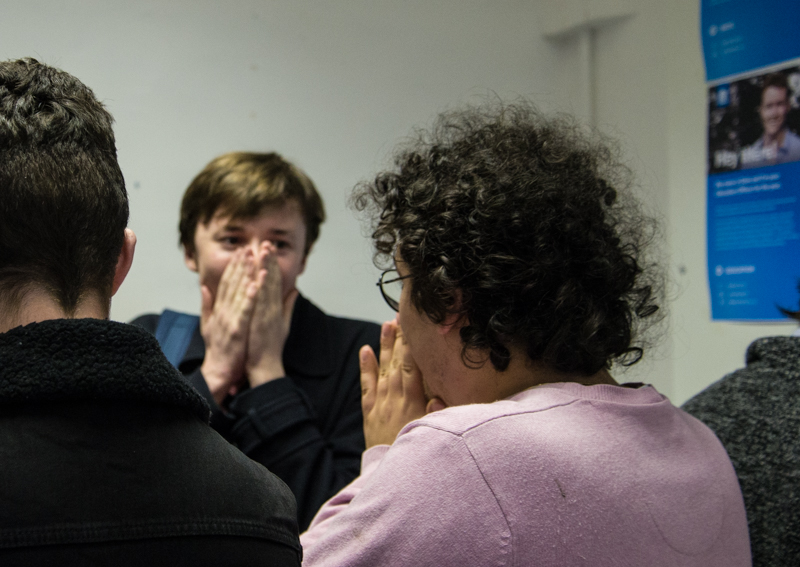Fifty-five per cent of voters in Trinity have today chosen to support neutrality over Irish unity, making it the first college in Ireland in a string of referenda this year to vote not to mandate their union to support a united Ireland.
Over the last few weeks, campuses across Ireland have been voting in favour of Irish unity. This year, University College Cork (UCC), NUI Galway (NUIG) and University College Dublin (UCD) have all voted to mandate their unions to support Irish unity, although Trinity has been the only union to include a “neutral” stance in the options presented to students.
There were 2,155 valid votes cast over two days, with 43 per cent of students voting for a pro-unity stance. Only two per cent of those who voted chose to support a stance against Irish unity.
Speaking to The University Times following the result, Sally-Anne McCarthy, a senior member of the neutral campaign, said she welcomed the result. She hoped the result would lead to a “continuation of conversation”, and said it was “beneficial” to have these conversations.
Speaking to The University Times, Conall Moran, a senior member of the pro-unity campaign, said the result was “disappointing”. Moran said he was proud that they had brought up the issue and respected students’ decisions.
Noting the pro-unity votes that have taken place in other colleges, Moran said it was a pity they couldn’t follow their lead, but said he hoped they could continue the discussion in the future.
Responding to a question on the side’s plans for the future, he said he wouldn’t rule out a bid for a binding referendum in the future. He emphasised, however, that they would discuss their next steps as a campaign team.
As this was a preferendum, and not a referendum, the result does not bind TCDSU to support neutrality. As such, it is still possible for a referendum on Irish unity to be called. To call a referendum that would bind the union, a motion would need the support of two thirds of voters at a meeting of TCDSU’s council or 250 signatures would have to be collected.
TCDSU’s constitution states that a referendum has to take place within five teaching weeks and not before two teaching weeks after it is called. As the only remaining meeting of TCDSU’s council of the academic year takes place on the last week of the term, the union’s Electoral Commission could decide that a referendum called there would have to be held in the next academic year.
The preferendum arose from a discussion item at a meeting of TCDSU’s council in February, which was proposed by Moran. Speaking to The University Times during the campaign, Moran emphasised the significance of Ireland sending a “message of support” to Northern Ireland by taking a pro-unification stance.

The campaign over the last week has proved heated at times and Monday’s hustings on the Dining Hall steps saw both sides clash repeatedly on the use of the term “nationalist” and whether a pro-unity stance would alienate unionists in Northern Ireland.
The Leader of Sinn Féin, Gerry Adams, has already expressed his support for the referendum taking place on college campuses. In an email to The University Times, he said that “young people are showing the rest of us how it should be done”.
Following the success of the referenda in the last few weeks, some pro-unity campaigners have talked of hopes for the creation of a “Universities for Unity” organisation, which would see colleges and universities working together to lobby and campaign for a unity Ireland. Speaking to The University Times last week, Lucy Connor, Chair of UCD for Unity, who is also chair of the UCD branch of Sinn Féin but was not speaking or campaigning in that capacity, described the first successful referenda was a “way to get the ball rolling and have the major institutions on board”.
The Trinity preferendum campaign did not have an official anti-unity side, and some members of the neutrality side expressed their support for a united Ireland during the course of the campaign. The neutrality side had warned that a pro-unity stance would alienate some students, while forcing TCDSU to lobby the Irish government on an issue they have very little power to change.
In a statement after the result was announced, TCDSU President, Kieran McNulty, said he was “glad that students’ had chosen to debate the issue”. The issue, he said, will return to the next TCDSU council for a full discussion.
Sinéad Baker contributed reporting to this piece.







